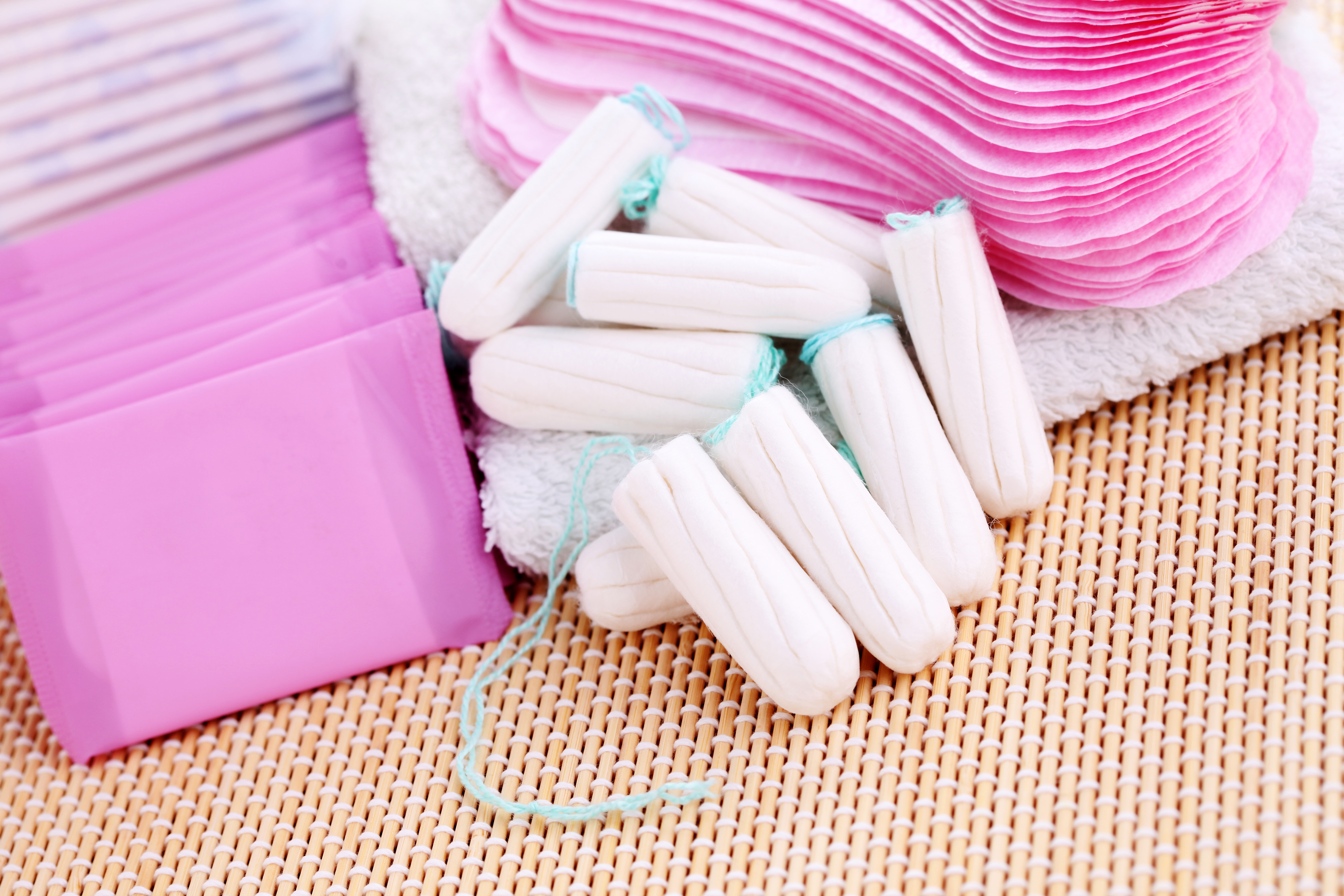Period products should be free in public bathrooms | Opinion
Some lawmakers continue to see these crucial items as a luxury.

Period poverty impacts a staggering 500 million people globally — a systemic problem that has gotten worse during COVID-19. Despite its prevalence, it continues to be largely ignored and limited access to menstrual products remains widespread, including in the United States. Changes to the U.S. federal tax code and important safety net programs could substantially reduce the number of Americans affected by this hardship.
Period poverty — the inability to afford menstrual products due to financial constraints — exacerbates income inequality and amplifies the shame and stigma that continue to surround menstruation.
Periods are costly. A person who menstruates spends an average of almost $19,000 throughout their life on menstrual products.
Period poverty contributes to lost wages. A 2019 study found that 36% of those surveyed missed one (or more) day of work per month due to period poverty.
Students are also heavily impacted. Four out of five students report that they (or a classmate) missed school during their period because they didn’t have access to supplies. Five states mandate that schools supply free products. A bill requiring Pennsylvania schools to supply essential menstrual products died in the 2019-2020 legislative session.
Period poverty remains an ongoing problem in Pennsylvania, with local nonprofits trying to meet this critical need. Local high school students have also created a petition urging schools to provide period supplies.
The stress of period poverty is profound and can increase anxiety and depression. In a 2020 study, researchers found that there was a significant association between depression and period poverty. Medical complications can also occur when people are forced to wear a pad/tampon longer than is safe.
“Menstrual products are inextricably tied to a person’s ability to participate equitably in society — to attend school, be productive at work, and exist safely in the world and at home,” says Jennifer Weiss-Wolf, an attorney for the Brennan Center for Justice and cofounder of Period Equity.
Period products should be free in public restrooms, shelters, prisons (many do not supply them), and school bathrooms — just like toilet paper and soap.
» READ MORE: Period poverty is an unknown consequence of coronavirus shutdowns | Opinion
Period products are taxed in 30 states, while other essential items (medications/food) are typically tax-free. Many of these states make a significant annual profit off of these taxes — Texas raked in $37 million. These taxes must be repealed, but many states fail to act, with Wyoming the latest state to reject a repeal. To address this inequity, menstruators should receive a federal “menstrual supplies” tax credit for taxes they incurred paying for these necessary products.
“Forcing people to pay taxes on medically necessary monthly products is oppressive. Access to crucial supplies should not be contingent on states making a profit,” reports Emily Skeen, a pediatric nurse in New York City.
Some lawmakers continue to see these crucial items as a luxury. Efforts in 2020 to allow the tax-free purchase of period products during Tennessee’s annual “sales tax holiday” — where shoppers can purchase certain items without paying the state’s 7% tax — upset Tennessee Republicans. GOP State Sen. Joey Hensley claimed this would lead to people stockpiling tampons.
If taxpayers can reduce their tax burden when they deduct medical expenses, then menstrual products should be eligible for a tax credit. This change in the federal tax code could be made during the second budget reconciliation Congress is expected to begin this summer.
Programs such as the Supplemental Nutrition Assistance Program (SNAP) or Medicaid that many low-income people need don’t cover period products. Adjustments to these safety net programs to include these supplies will make them more accessible. “People shouldn’t have to decide between buying food or period supplies,” says Skeen.
Period products are an essential item. It is far past time we treat them as such and remove expensive barriers that limit peoples’ access and compromises their health.
Misha Valencia is a clinician and a writer whose work has been featured in the New York Times, the Washington Post, Marie Claire, Parents Magazine, HuffPost, Good Housekeeping, Al Jazeera, and many others.